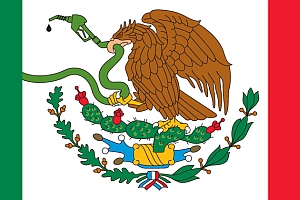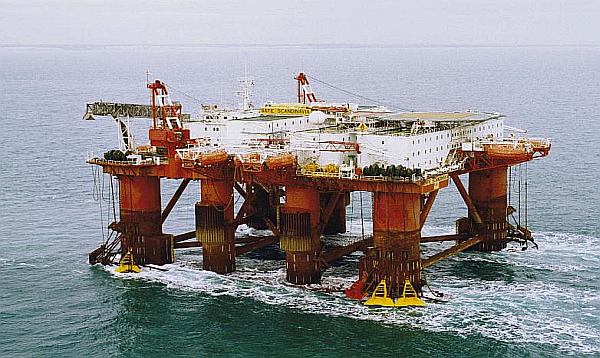Mexico - When it was discovered in 1976, Mexico’s offshore Cantarell oil field was one of the world’s largest, and it quickly became a money machine for Petróleos Mexicanos (Pemex), the giant state-owned oil company. Thanks to this bonanza, Mexico became one of the top three sources of crude for the US and Pemex became the biggest source of tax revenue for the government.
Cantarell seemed to justify Mexico’s expulsion of the big British and American oil companies in 1938, and its policy ever since of forbidding outside investors from exploring and producing in the country. The ban on major outside investment in Pemex is even enshrined in the Mexican constitution.
Today, Cantarell’s output is shrinking. Pemex’s total production declined to 2.5 million barrels a day last year, from 3.4 million in 2004, and in the last quarter oil exports to the US hit the lowest quarterly average since 1993. Pemex estimates it has 27 billion barrels of untapped oil in the deepwater Gulf, but it is relying on limited in-house experience and third-party technology to exploit it. So far it has failed to find any commercially viable crude after 20 attempts. Pemex lost $7.4 billion last year on $126 billion in revenue, its fifth consecutive annual loss.
Incoming President Enrique Peña Nieto has declared that overhauling Pemex will be his “signature issue.” His Institutional Revolutionary Party-led alliance wants outside oil companies to invest in Pemex’s exploration and development activities. "He knows it would be an extraordinary step forward, as extraordinary as was Nafta," says historian Enrique Krauze, referring to the North American Free Trade Agreement, which was implemented in 1994. Nafta spurred a sixfold increase in Mexican sales to the US.
The prospect of Peña Nieto allowing outside investment in Mexico’s oil fields has caught the attention of companies such as ExxonMobil. "Mexico needs to open up to partnerships and collaborations and bringing technology to bear on its resources," ExxonMobil chief Rex Tillerson said on June 27th. "The interest would be huge from the international standpoint, similar to Iraq," says Jeremy Martin, an oil specialist at the Institute of the Americas in La Jolla, California.
Opening up the oil sector may boost gross domestic product by as much as 0.8 percent a year, according to research firm Capital Economics. Combined with the discovery of significant amounts of shale gas in northern Mexico, tapping deepwater oil could create an era of low energy costs for the country.
 |
Inviting outsiders to invest in Pemex could also transform the psychology of business in Mexico. To change Pemex, Peña Nieto will have to challenge entrenched interests, from the unions to local officials, who have all benefited from Pemex’s largesse. If he succeeds he could tackle other monopolies and duopolies in power generation, telecom, and cable television that make life so expensive for Mexicans.
It will not be easy for Peña Nieto to pull off an ambitious reform of Pemex. The alliance led by his party, known in Mexico as the PRI, will have 240 seats in the 500-seat lower house. That leaves the PRI well short of the two-thirds majority needed for constitutional changes to open up the oil industry to private investment.
One thing in Peña Nieto’s favor: The National Action Party, or PAN, of outgoing President Felipe Calderón may back his plans to reform Pemex. PAN Senator Rubén Camarillo said on July 3rd that his party "favors opening the energy industry and will support reforms that benefit Mexico regardless of who proposes them."
Popular opinion is also starting to shift in favor of big changes at Pemex. Brazil’s success in turning around its oil industry and mastering the art of deepwater drilling has Mexicans wondering why Pemex can’t do the same. Then there’s fear of the so-called straw effect, in which some oil deposits that straddle international boundaries in the Gulf might be exploited first from the US side, leaving no crude by the time Pemex manages to obtain the technology and experience it needs to produce from those depths.
Peña Nieto has said he may present the needed constitutional changes after the new congress begins work on September 1st and before he takes office on December 1st. He may have gone some way toward building consensus for the constitutional changes within the PRI party by consulting with Pemex’s powerful oil workers’ union and other labor groups, which have traditionally supported the party. "More investment means more jobs," Pemex labor union leader and PRI Senator-elect Carlos Romero Deschamps said in a June 19th interview.
The president-to-be also has to woo holdouts in his own party, which created Pemex. "Support from PRI factions is fundamental to pass reform," says Jorge Chabat, a political science professor at the Center for Economic Research and Teaching in Mexico City. "There may be some PRI members left who are against the idea of opening the sector to foreign investment, but at the end of the day they will fall into line."


